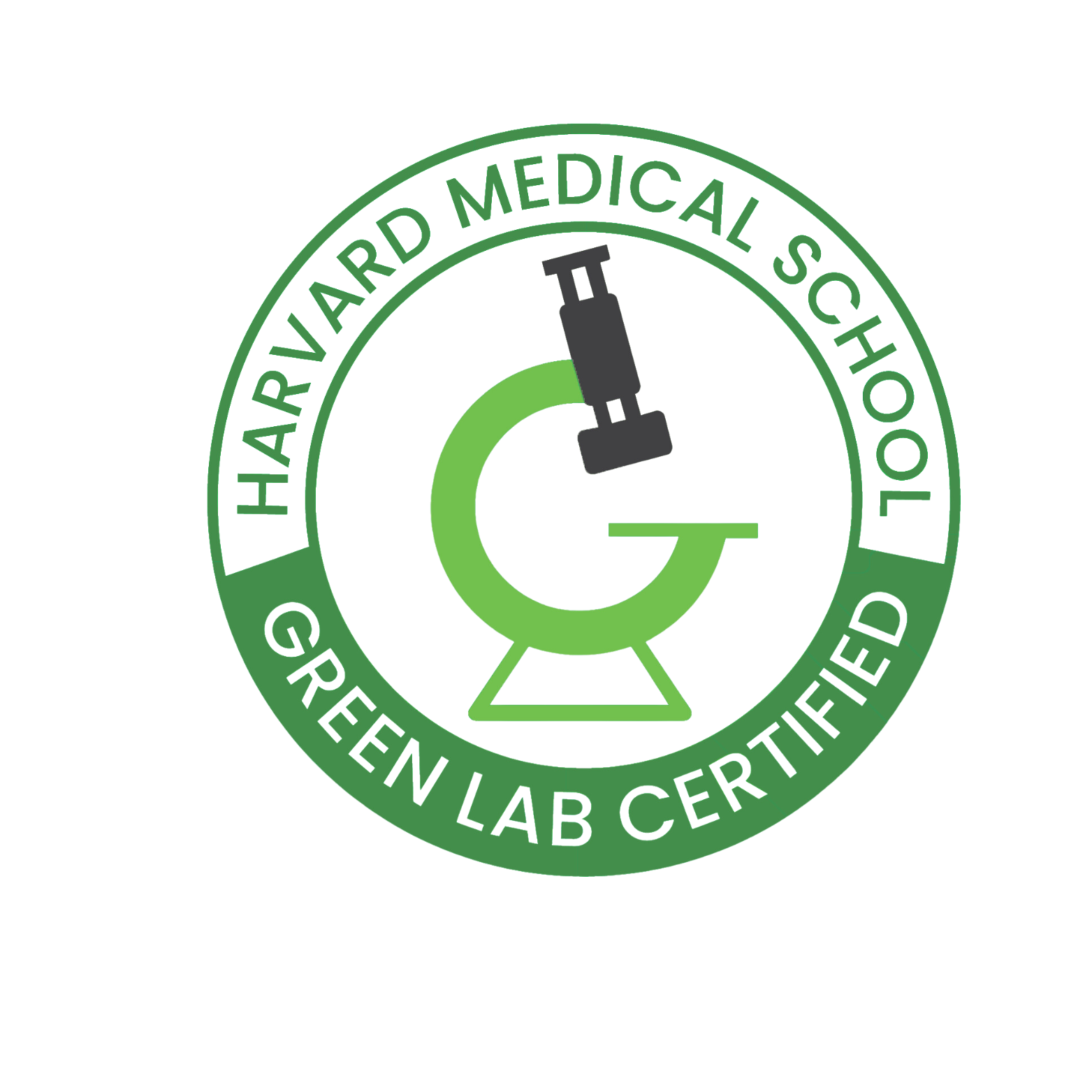Green Labs aim to support laboratories in reducing their environmental impact while maintaining the integrity and safety of their research. By adopting a collaborative and team-oriented approach, these programs strive to lower energy consumption, conserve water, and minimize material use, all the while enhancing overall efficiency.
HMS dedicates most of its campus space to laboratories, which account for the vast majority of the institution's annual energy consumption. As a result, laboratories are a strong focus of energy conservation measures and the strategic energy projects on campus. Sustainability and efficiency achievements on campus must keep up with the expansion of research, increased building population density, and the continued introduction of delicate, energy intensive equipment.
The HMS sustainability program looks for opportunities to work directly with researchers and incentivize labs to explore ways to incorporate sustainability into their research practices. This includes encouraging making lower impact purchasing choices for equipment, reusing and exchanging materials and resources with other labs, and conserving energy and water wherever possible.
Did you know? Laboratories can consume 5 to 10 times more energy per square foot than office buildings and produce significantly more waste – one study finds that research labs produce 12 billion pounds of plastic waste per year. Due to the tremendous environmental impact of scientific research, a shift in how research is conducted and supported is necessary to help combat the global climate crisis.
Green Lab Certification

The HMS Green Lab Certification Program aims to:
- Assess the current sustainability level of participating labs
- Provide actionable recommendations for improving eco-friendly practices
- Acknowledge and celebrate labs already implementing sustainable measures
Certification is awarded based on a self-assessment checklist with which labs can evaluate their practices and progress. Certification is awarded on a three-tier basis: bronze, silver, and gold. The program is best suited for wet labs with fume hoods and cold storage, as these are some of the most energy and resource intensive elements of lab operations. Labs without fume hoods and cold storage wanting to participate should reach out to the sustainability program for a customized green labs survey.
As a leader in research and innovation, we have a responsibility to pioneer sustainable laboratory practices. With over 260 labs across our campus, our collective efforts can make a substantial impact on our environmental footprint.
Join us in creating a more sustainable future for scientific research by starting your Green Lab Certification today.
Get in touch with sustainability@hms.harvard.edu to learn more or to schedule your lab for a sustainability presentation or introductory call.
ULT Freezer Rebates
Ultra-Low Temperature (ULT) freezers, -70 and -80 degree freezers, are significant energy consumers. Older models can consume up to 30 Kwh/ day—as much as some entire homes! When you purchase a new ULT freezer, consider a high-efficiency model that consumes as little as 8 Kwh/day. HMS Facilities offers rebates of up to $5,000 on certain model purchases to promote the procurement of highly efficient units on campus. Purchases must meet several eligibility criteria to qualify for the rebate and are limited to an approved list of models.
Take advantage of this opportunity to upgrade to a highly efficient unit while contributing to campus-wide efforts to reduce our energy intensity. For more details on the program, please reach out to sustainability@hms.harvard.edu.
Resources
- Visit the HMS Finance page on Sustainable Procurement for tools and tips to help your labs’ purchases be more sustainable.
- Shut the Sash (OFS Report)
- 12 Principles of Green Chemistry
- Chilling up an ultra-low temperature freezer from -80C to -70C can result in 30-40% energy savings.
- Do you have an idea for improving the sustainability of your lab? Contact us!